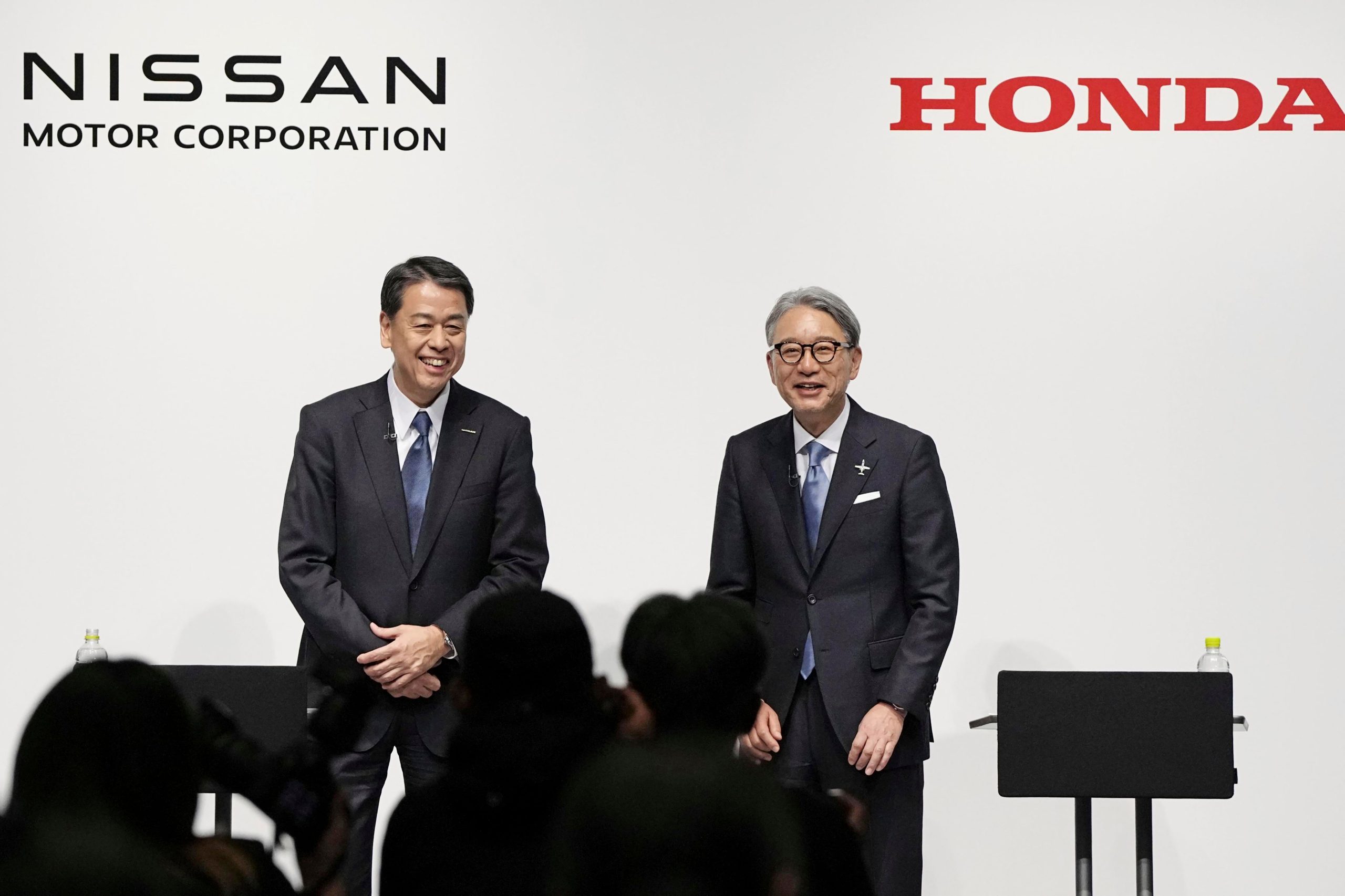On Wednesday, Japanese automakers Nissan Motor Corp. and Honda Motor Co. refuted rumors that they had reached a merger decision, but they did reveal that they are talking about working together more closely.
After reports citing anonymous sources suggested that Nissan and Honda would merge to establish the third-largest automaking group in the world, the company’s share price in Tokyo surged by about 24 percent. The value of Honda’s stock dropped by up to 3%. Mitsubishi Motors Corp., a member of the Nissan alliance, is also involved in the negotiations.
After the firms jointly released a statement stating that they were evaluating several options for future cooperation but had not yet made any decisions, trading in Nissan’s shares was halted and then resumed.
An industry shakeup
At a time when manufacturers are finding it difficult to transition from fossil fuel-powered vehicles to electric ones, the rise of Chinese automakers is rocking the industry. The market shares of American and Japanese automakers are being reduced in China and other countries by relatively cheap EVs like China’s BYD, Great Wall, and Nio.
Japanese manufacturers are currently attempting to reduce expenses and make up for lost time after falling behind their major competitors in the EV market.
In order to better adjust to the significant shifts in the auto industry that are concentrated on electrification, Nissan, Honda, and Mitsubishi stated in August that they would exchange parts for electric vehicles, such as batteries, and collaborate on research software for autonomous driving. In March, the second-largest carmaker in Japan, Honda, and the third-largest, Nissan, announced a preliminary agreement.
Given the combined market capitalization of the three manufacturers, a merger might create a giant valued at roughly $55 billion.
By joining forces, the smaller Japanese automakers would be able to increase their scale and compete with Germany’s Volkswagen AG and Japan’s market leader Toyota Motor Corp. Toyota itself has technical alliances with Subaru Corp. and Mazda Motor Corp. of Japan.
What would Honda need from Nissan?
According to Sam Fiorani, vice president of AutoForecast Solutions, Nissan offers huge SUVs with truck-based body-on-frame models, such the Armada and Infiniti QX80, that Honda does not have. These vehicles have good off-road performance and large towing capacity.
He added that Nissan’s years of experience in producing electric cars, batteries, and gas-electric hybrid powertrains may aid Honda in creating its own EVs and the next generation of hybrids.
A merger or cooperation might benefit Nissan in certain product categories that Honda does not currently serve, according to automobile industry analyst Sam Abuelsamid of the Detroit region.
According to Fiorani, Nissan’s electric Leaf and Ariya are good cars even though they haven’t sold well in the US. “They have been developing this technology and haven’t been sitting on their laurels,” he remarked. They have upcoming products that might give Honda a solid foundation for its upcoming generation.
Why now?
Nissan said last month thatit was slashing 9,000 jobs,or about 6% of its global work force, and reducing global production capacity by 20% after reporting a quarterly loss of 9.3 billion yen ($61 million).
Earlier this month it reshuffled its management and its chief executive, Makoto Uchida, took a 50% pay cut to take responsibility for the financial woes, saying Nissan neededto become more efficient and respond better to market tastes, rising costs and other global changes.
Fitch Ratings recently downgraded Nissan s credit outlook to negative, citing worsening profitability, partly due to price cuts in the North American market. But it noted that it has a strong financial structure and solid cash reserves that amounted to 1.44 trillion yen ($9.4 billion).
Nissan s share price has fallen to the point where it is considered something of a bargain. A report in the Japanese financial magazine Diamond said talks with Honda gained urgency after the Taiwan maker of iPhones Hon Hai Precision Industry Co., better known as Foxconn, began exploring a possible acquisition of Nissan as part of its push into the EV sector.
The company has struggled for years following a scandal that began with the arrest of its former chairmanCarlos Ghosnin late 2018 on charges of fraud and misuse of company assets, allegations that he denies. He eventually was released on bail and fled to Lebanon.
Honda reportedits profits slipped nearly 20% in the first half of the April-March fiscal year from a year earlier, as sales suffered in China.
More headwinds
Toyota made 11.5 million vehicles in 2023, while Honda rolled out 4 million and Nissan produced 3.4 million. Mitsubishi Motors made just over 1 million. Even after a merger Toyota would remain the leading Japanese automaker.
All the global automakers are facing potential shocks if President-elect Donald Trump follows through on threats to raise or impose tariffs on imports of foreign products, even from allies like Japan and neighboring countries like Canada and Mexico. Nissan is among the major car companies that have adjusted their supply chains to include vehicles assembled in Mexico.
Meanwhile, analysts say there is anaffordability shifttaking place across the industry, led by people who feel they cannot afford to pay nearly $50,000 for a new vehicle. In American, a vital market for companies like Nissan, Honda and Toyota, that s forcing automakers to consider lower pricing, which will eat further into industry profits.
— Tom Krisher, The Associated Press
Note: Every piece of content is rigorously reviewed by our team of experienced writers and editors to ensure its accuracy. Our writers use credible sources and adhere to strict fact-checking protocols to verify all claims and data before publication. If an error is identified, we promptly correct it and strive for transparency in all updates, feel free to reach out to us via email. We appreciate your trust and support!







